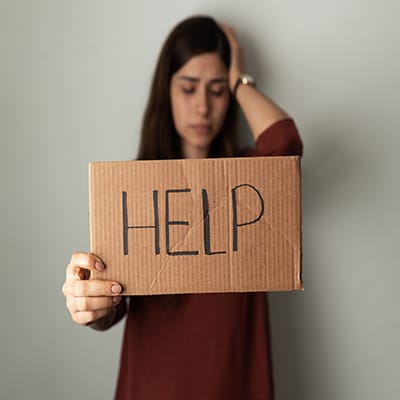It’s no secret. I am a seriously recovering people pleaser. Growing up in the midst of severe codependency and no boundaries, I learned early on I was not supposed to ‘rock the boat.’ I feared any healthy conflict or heaven forbid standing up for myself. I had learned I was ‘sick’ and therefore somehow unable to fend for myself.
The habits we see in our parents growing up, unfortunately, can take hostage of our adult lives. It wasn’t until a serious ascendency recovery that I started to break the cycle of oversharing, needing constant outside validation, having difficult conversations, and yes, asking for help.
As travel and events begin to resume, like so many others, I find myself in more social situations for both work and fun. Being home alone for over a year, I did not have to outwardly manage my physical issues or ask for help or manage other people’s reactions to my situation.
That’s changing. On a recent work-related trip, I was faced with the reality that I have needs that require me to ask for help. As much as I hate to admit it, it’s a simple truth.
Being single, I am used to taking care of everything by myself. You could reframe this as a benefit of independence. While recently traveling with a group, I had to be more vocal about my needs. The familiar discomfort started with booking a trip. I asked the event coordinators to fly me a day early as to not overly exhaust myself and have my blood sugar rage out of control. The entire experience was a refresher course in having to put my needs first. It was immensely uncomfortable.
As a person with both seen and unseen impairments, I also just wanted to be normal and able to be like ‘everyone else.’ I know intellectually this is silly. My diabetes, visual impairment, and mobility issues are not a reflection of who I am. Now though it feels debilitating.
I enjoyed these events and I met amazing people. I was both humbled and honored to be invited and able to participate. I saw that many other people were managing physical conditions, so I was in good company all around.
And yet, I found myself wanting to disappear into the rafters. I felt that twinge of guilt when I could no longer stand anymore and had to ask for a chair. I hated that I had to ask to leave for the airport before the crack of dawn and wait for a wheelchair to escort me to the gate because it was too far for me to walk.
In observation of what was happening in my mind, it was a great moment to breathe, step back, and just appreciate my body standing strong in taking care of myself. Surprised, after all these years, asking for help for my health and physical safety was so uncomfortable.
Can you relate? Is asking for help hard for you too?
The experience became a crash course in learning to enjoy the moment and all the excitement of a gathering. I realized that my angst was, in part, holding me back from just being myself. It was one of those beautiful moments where I had the opportunity on how I would respond to my discomfort.
I am sure we all face uncomfortable situations at times. It’s just part of life. The question becomes will that discomfort inhibit our growth and joy or will we just acknowledge it and say ‘no thanks, I’m not giving in to that negativity today.’
Trying to appease the needs of others or please everyone does not benefit anyone. Asking for help and having my health and safety needs met is another learned trait of living with diabetes, a visual impairment, and chronic pain and mobility issues. For us trauma survivors it’s important to let go of the guilt and shame and stand tall in self-care and integrity. We are never a victim of our circumstances.
People-pleasing is learned and can be unlearned if we have the confidence and self-respect to put ourselves first. As with anything in life, it’s a choice. You are winning!
